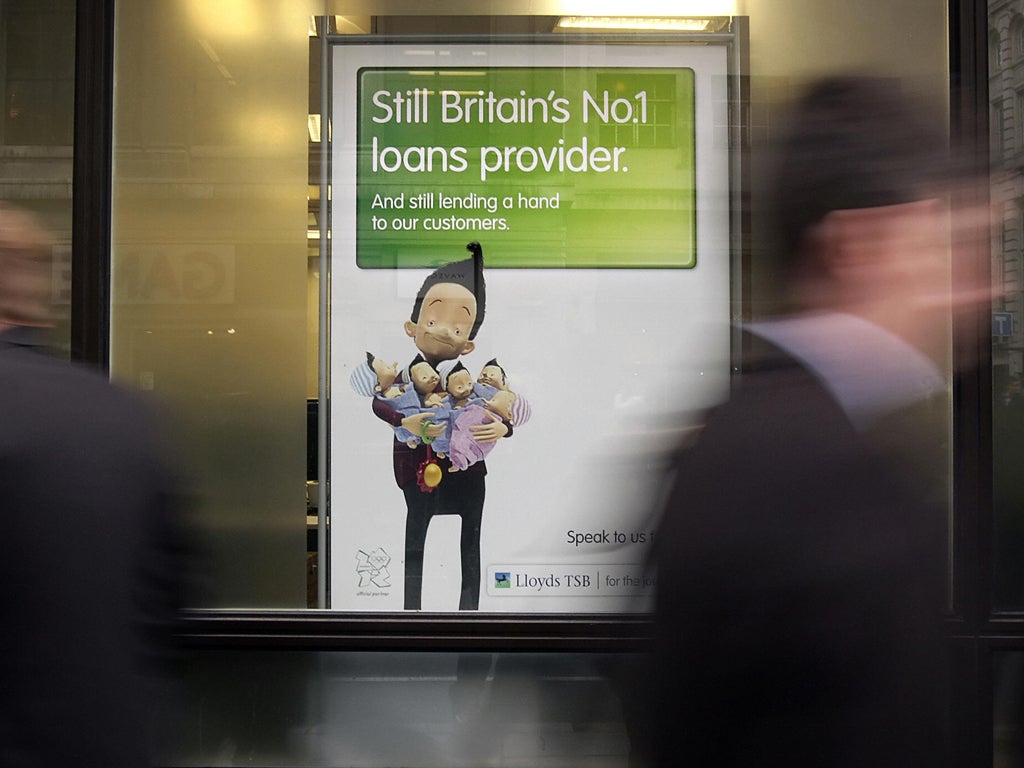The thaw in loan market will not benefit everyone
Lenders are offering better rates of interest, but only if you want to borrow a large amount

Your support helps us to tell the story
From reproductive rights to climate change to Big Tech, The Independent is on the ground when the story is developing. Whether it's investigating the financials of Elon Musk's pro-Trump PAC or producing our latest documentary, 'The A Word', which shines a light on the American women fighting for reproductive rights, we know how important it is to parse out the facts from the messaging.
At such a critical moment in US history, we need reporters on the ground. Your donation allows us to keep sending journalists to speak to both sides of the story.
The Independent is trusted by Americans across the entire political spectrum. And unlike many other quality news outlets, we choose not to lock Americans out of our reporting and analysis with paywalls. We believe quality journalism should be available to everyone, paid for by those who can afford it.
Your support makes all the difference.Personal loan rates have now fallen to levels not seen since before the credit crunch according to financial information service Moneyfacts.
M&S Money is offering £10,000 at a rate of just 6 per cent over five years and that isn't the only good deal out there as providers move their rates lower in a mini price war.
However, we are not in reality returning to some sort of pre-2007 where personal loans were virtually as cheap as mortgages. Rates diverge markedly at different borrowed amounts and periods of loans.
Borrow a large sum – over £7,500 – and pay back over three, four and five years and rates are low but look at smaller amounts and over shorter periods and the interest charged escalates. Expect to pay at least 18.9 per cent and most deals on offer are for existing customers only.
There has long been an anomaly that shorter-term borrowing attracts higher interest than longer term – it's a combination of having to absorb the costs of setting up the loan and the lender's concern that individuals that need to borrow relatively small amounts over short periods are probably maxed out on their credit card or authorised overdraft facility, a more obvious source of short-term lending.
Try to borrow £1,000 over six months and there is only one mainstream lender in the market, Bank of Ireland which will lend at a rate of 29.6 per cent including an arrangement fee of £65. We've never had such a paucity of choice and high rates – relative to larger loans – in this space.
Now banks will say they cater for this through overdrafts and credit cards but there is a definite need as exposed by the shocking Shelter report last week that a million of us are using a payday loan at charges of up to 4,000 per cent to pay our mortgage or rent.
At the other end of the loan scale, the Bank of England has said, as predicted in this newspaper, that there will be more higher loan to value mortgages available in 2012. But lenders will be tightening criteria so a smaller percentage of borrowers will get the choice cuts.
There have always been credit have and have-nots in our society, but it's never felt as acute a situation as it does today.
Thank you EU
So, who says the EU doesn't do anything for us Britons? From this week you should notice many of your electronic payments going into and out of your current, savings or credit card account at a more rapid rate. An EU directive has come into force forcing banks and other financial institutions to deal with electronic payments within 24 hours.
This means that instead of using Bacs – which can take three days – a faster payment system will have to be used which should be almost instantaneous. No more should you have that frustrating wait for money to transfer into your account and be told by your branch if you want it to move any faster you'll have to arrange and pay for a Chaps transfer.
For example, if you pay your credit card online or by telephone banking then it will be credited that day. If you pay a bill by the same methods then this will also leave your account that day and arrive the same day at its destination. If you go into a bank branch and pay off a bill with cash that will now clear that same day. In the past some banks would hold onto this cash for three days making money in interest themselves. Standing orders will also move in the blink of an eye.
The good news is that these changes should help avoid penalties for late payments of credit card bills and should reduce the number of overdraft charges.
But there is one payment method noticeable by its absence. The good old cheque. It can still take up to 10 days to clear a cheque – more usually three or five. When the overhaul of the cheque system promised by the UK banking system – after the furore of the proposed phasing out – the ridiculous and seemingly arbitrary number of days payments take to clear should be a priority. Maybe we could have an EU directive for that rather than wait for the banks?
Not such a great payday
On payday loan companies again, apparently one firm is offering Facebook users an incentive to leave tributes on its page. The best tribute attracts a whole £25 payout – equivalent to one week interest on a £200 loan.
Join our commenting forum
Join thought-provoking conversations, follow other Independent readers and see their replies
Comments